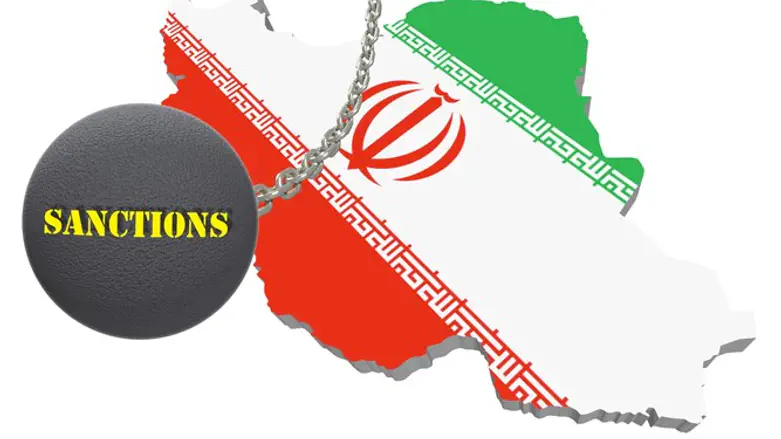
The mullahs’ regime is the biggest winner in the dispute between the US and Europe over the Iranian nuclear deal. The rift between positions and views offers a valuable venue for the mullahs to assert their position. It sends them the wrong message.
The transatlantic dispute is not about the essence of the crisis—the threats posed by Iran’s expansionist ambitions. It is about how to deal with such threats.
From the beginning of his campaign for the first presidential election, President Donald Trump saw that the P5+1 nuclear deal of 2015 with the mullahs’ regime does not touch on all the issues regarding Iranian threats.
This is evidenced by Iran’s ongoing development of its missile program. The agreement makes no provision to prevent this from happening. In addition, the threat from neighboring countries and meddling in their internal affairs are still very much real.
Therefore, President Trump proposed a revision of the deal. He ultimately announced his country’s exit from the agreement in 2018 and adopted a strategy of harsh sanctions for maximum pressure on the mullahs.
For their part, the Europeans undertook to maintain the agreement while seeking to amend the terms to include all issues linked to Iran and its relationship with the region and the international community.
The French president has stressed the need to define “a useful framework for action, [...] that is to say, the capacity to complete the 2015 agreement [...] to ensure that in the long term Iran will never have access to nuclear weapons [and] to provide answers to Iran’s ballistic activity [and] its destabilization in the region.”
There is, after all, common ground between the American and European parties. The consensus is that the Iranian threat exists. In particular, the ballistic missiles developed by the mullahs’ regime pose a serious risk to the security and stability of European countries in the first place.
But the crux of the problem lies in the inability of the US and Europe to reconcile their points of view on the points of disagreement regarding negotiations with Iran. French President Emmanuel Macron recently told the UN that France, Germany and Britain “will not compromise” their refusal to support the reintroduction of UN sanctions on Iran after the US took the initiative.
France “will not accept the violations committed by Iran,” Macron said. “However, we will not compromise on the activation of a mechanism that the US, on its own initiative, by exiting the agreement, is not in a position to activate. ”

We are not talking about a lone dispute; it is fuelled by other divisions in positions, such as the disagreement between the two sides on global warming, the Arab-Israeli conflict and the NATO budget.
It is clear that there is a dispute of a technical nature. So the disagreement is tactical, not strategic. But in general, it is not isolated from the general context of European-American relations for years.
We are not talking about a lone dispute; it is fuelled by other divisions in positions, such as the disagreement between the two sides on global warming, the Arab-Israeli conflict and the NATO budget.
Many positions within the UN and its Council in recent years attest to how the West is no longer a monolithic bloc. We are becoming more and more used to Washington opposing draft resolutions presented by European countries and conversely.
But this does not spell the undoing of the Transatlantic strategic alliance. Perhaps it is more a question of a European approach to keep the EU together against the Trump administration’s pressure, especially with regard to European defence allocations.
The European trio, Germany, France and the UK, has put itself in hot water having been embroiled in a conflict with the American position. At the same time, it is unable to persuade Russia and China (the other two partners in the nuclear agreement) to pressure Iranian officials to renew negotiations to amend the terms of the nuclear accord.
They don’t have a chance unless Democratic candidate Joe Biden wins the US presidential election in November. Biden could then re-evaluate the American position and reverse President Trump’s decision to withdraw from the nuclear deal.
Fixing the relationship between Europe and the US will be a priority for Biden. On the other hand, the North Atlantic divide over Iran will persist, if not worsen, due to the strong chance that President Trump wins a second term.
The stakes remain high for the continuation of the mullahs’ sanctions policy, as the Iranian regime seems ready to come to the negotiating table in the event of President Trump’s second term in office.
Now, all the mullahs are doing is demonstrating their resilience and what they see as the failure of President Trump’s strategy in Iran, which could weaken his chances of winning a second term. But at the same time, they are ready to swallow the bitter pill. The European camp will then be the biggest loser in this game.
The dissent between Europe and the US may not be something new in their relations. In the past, such differences did not really involve the UK, Washington’s closest partner in NATO. This time, however, London is lining up with Paris and Berlin to keep the nuclear deal with Iran alive.
This is in the mullahs’ interest. It explains the inflammatory tone of their political discourse, to the point of claiming that the US has become internationally “isolated.” They know that President Trump will not be able to make a military decision in this delicate period. But they forget that this non-traditional president can make sudden decisions.
Salem AlKetbi is a UAE political analyst and former Federal National Council candidate